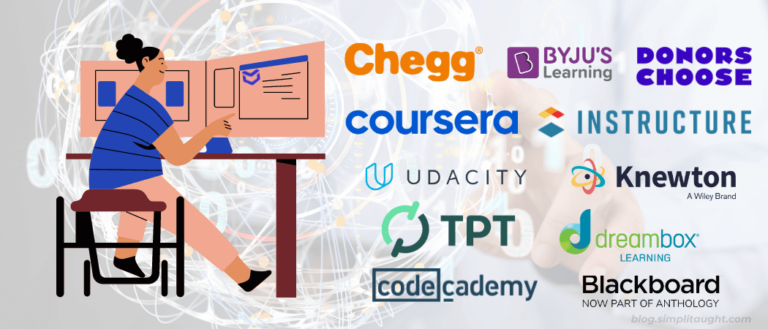AI-Powered LMS: Why It’s Time to Make the Switch
The educational landscape has undergone rapid changes over the past decade, and the rise of Artificial Intelligence (AI) has accelerated that transformation. Learning Management Systems (LMS) have long been the backbone of online education, but as the demands of learners evolve, traditional LMS platforms struggle to keep up. That’s where AI comes in. Now, more than ever, it’s the perfect time to update your LMS with AI to keep up with the latest educational trends, enhance learning outcomes, and improve administrative efficiency. Here’s why an AI-powered LMS is essential for educational institutions today.
1. Personalized Learning at Scale
One of the most compelling reasons to upgrade your LMS with AI is the ability to offer personalized learning at scale. Traditional LMS platforms deliver a one-size-fits-all learning experience, often forcing students to follow the same path regardless of their individual needs, learning styles, or strengths.
AI-powered LMS, on the other hand, leverages data analytics and machine learning algorithms to create tailored learning journeys for each student. By analyzing a student’s previous interactions with the platform, AI can recommend content, assessments, and activities that align with their unique learning preferences and pace. This personalization boosts engagement, ensures students stay on track, and ultimately improves learning outcomes.
2. Real-Time Analytics and Insights
With AI integrated into your LMS, educators gain access to real-time insights into student performance, participation, and engagement. These insights enable instructors to identify at-risk students earlier and take proactive measures to support their success.
For example, AI-powered systems can highlight students who are struggling with specific concepts or falling behind in assignments. Instructors can then intervene with targeted support or adjust lesson plans to better meet the needs of these learners. This ability to monitor student progress in real-time enables a more dynamic and responsive teaching approach, thereby enhancing the overall learning experience.
3. Automating Administrative Tasks
For educators and administrators, the administrative burden of grading, tracking progress, and managing schedules can be overwhelming. AI can automate many of these time-consuming tasks, allowing educators to focus more on teaching and less on administrative duties.
For example, AI can handle the grading of quizzes, assignments, and even open-ended questions using Natural Language Processing (NLP). Additionally, AI can send reminders for upcoming assignments, help with attendance tracking, and even manage course materials, freeing up valuable time for instructors to engage with students. By automating these tasks, institutions can reduce overhead costs, streamline workflows, and improve efficiency.
4. Enhanced Collaboration and Engagement
Collaboration is a critical aspect of modern learning, and AI can significantly enhance the collaborative experience within an LMS. AI-powered LMS platforms offer features such as virtual study groups, peer-to-peer assessments, and group projects that encourage students to collaborate, share knowledge, and learn from one another.
Moreover, AI can facilitate engagement by offering interactive elements, such as chatbots, real-time feedback, and instant assistance. These features allow students to get answers to their questions at any time, ensuring they remain engaged and motivated throughout their learning journey.
5. Supporting Diverse Learners
Another significant advantage of integrating AI into your LMS is the ability to support diverse learners. Every student has different learning preferences, needs, and challenges, and traditional LMS systems often fail to account for this diversity. AI-powered LMS can address these challenges by offering personalized recommendations based on factors such as language proficiency, learning disabilities, or prior knowledge.
For example, AI can provide real-time translations, offer content in various formats (videos, text, audio), or adjust the difficulty level of assignments to match the learner’s needs. This level of flexibility ensures that all students, regardless of their background or learning style, have the best possible chance to succeed.
6. Keeping Up with Industry Demands
As AI continues to permeate various industries, there’s an increasing demand for students to develop skills in AI, data analysis, machine learning, and other cutting-edge technologies. By incorporating AI into your LMS, you’re not just enhancing the learning experience but also equipping students with the necessary skills to thrive in today’s job market.
AI-driven learning platforms enable students to engage with these technologies in real-time, providing them with hands-on experience in their field of study. This real-world exposure is invaluable as students prepare for careers in tech-driven industries. By staying ahead of the curve and integrating AI into your LMS, you’re helping students stay competitive in an increasingly digital world.
7. Scalability and Flexibility
As educational institutions continue to grow, scalability and flexibility become increasingly important. AI enables your LMS to scale seamlessly, accommodating more students, courses, and users without compromising performance.
For example, AI-powered systems can adapt to changing demands, offering resources and support for new users, automating course creation, and delivering real-time assistance even during peak usage times. This level of scalability enables institutions to continue providing a high-quality learning experience to an expanding student base without incurring significant infrastructure costs.
Conclusion: The Future of Education is AI-Powered
AI is transforming how we learn, teach, and interact with educational technology. By updating your LMS with AI, you can create a more personalized, efficient, and engaging learning environment for your students. The benefits of integrating AI into your LMS are clear: enhanced learning outcomes, increased administrative efficiency, better support for diverse learners, and real-time insights that improve teaching strategies.
Now is the time to embrace AI in education. As the digital world continues to evolve, AI-powered LMS platforms will become a vital part of how educational institutions deliver content, foster collaboration, and prepare students for the future. By making the change today, you’ll be setting your institution—and your students—up for success tomorrow.








